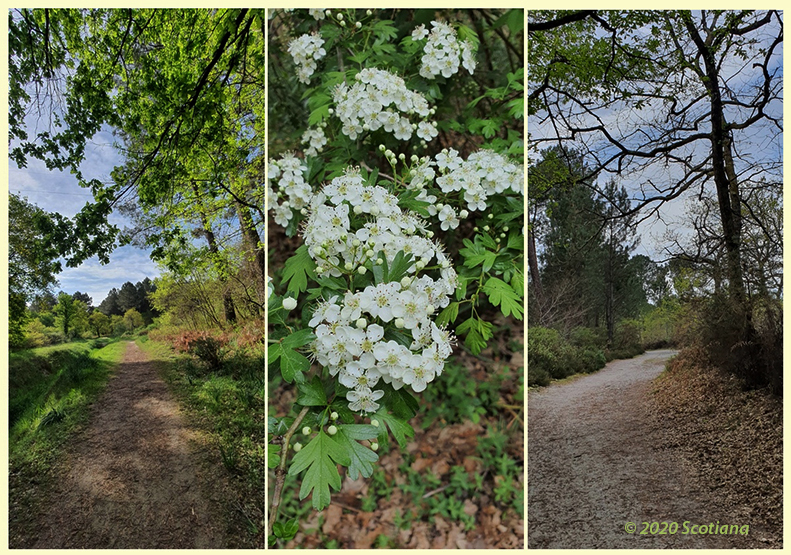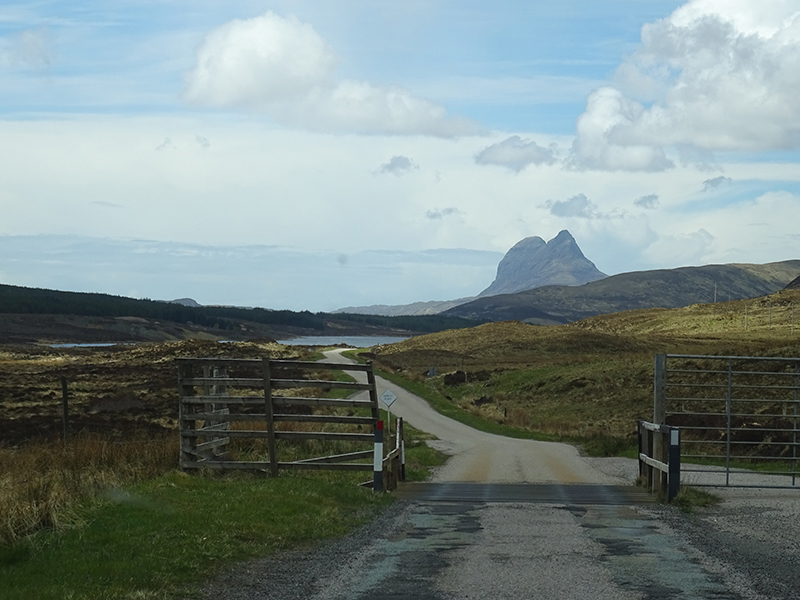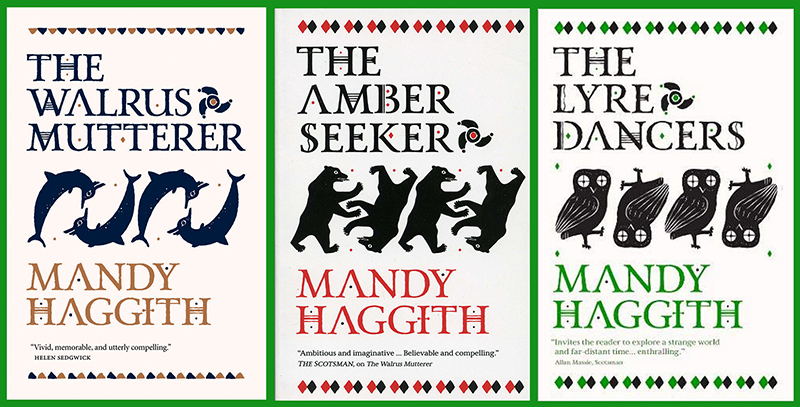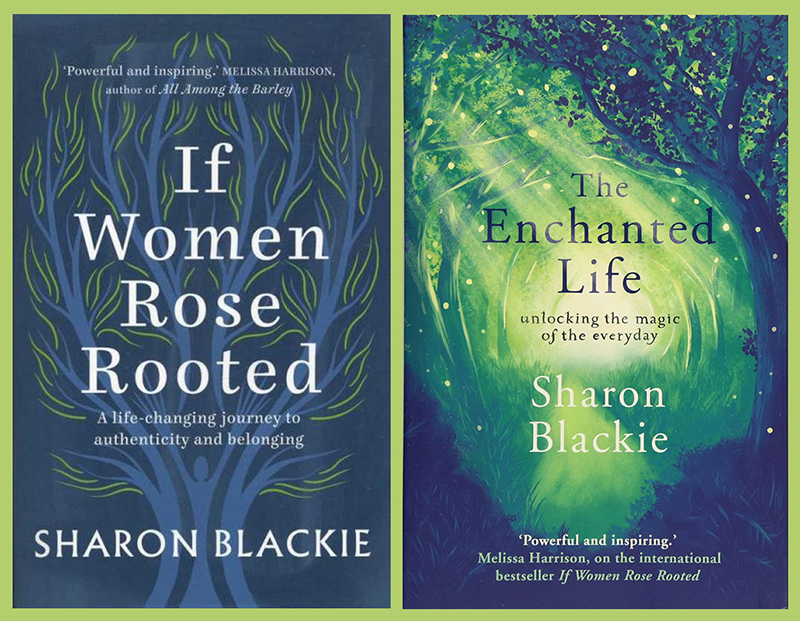Dear readers,
Ages seem to have passed since my last post on Scotiana and our wonderful trip to Scotland in winter. In the meantime, there has been the outbreak of that infamous covid 19 pandemy and I sincerely hope that you, your friends and family are doing well in such hard times.

Country path Aquitaine France© 2020 Scotiana
In France, like many people all over the world, those of us who are not obliged to go out to save other peoples’ lives or to help maintain the essential services in our societies, have to remain confined at home. Nobody can go outside except for health reasons or to make essential purchases in supermarkets, bakeries and pharmacies. We are also allowed to walk or take outdoor exercise for one hour a day but no further than 1km radius away from our house. I must recognize that we are very lucky, in our family, not only to have a garden but also to live on the edge of a lovely pine and oak forest…

Forest path Aquitaine France © 2020 Scotiana
Since all libraries and most bookshops are closed, it could be a good idea to browse our own bookshelves to see what we have there. As you may already have guessed I have a lot of Scottish books in my library and they are much cherished :-). Some of them have been acquired quite recently, like The Lyre Dancers which I downloaded on my kindle as soon as it was published. I intend to buy the paper version later and ask Mandy to dedicate it as she did for the first two volumes of the “Stone Stories”. I’m a fan and I must have all her books in my Scottish library!
Indeed, I will begin with Mandy’s trilogy. During our last trip to Scotland we spent some time in Ullapool. We had planned to drive up to Lochinver, where Mandy lives. We wanted to see the place, and especially the harbour, but the weather was so bad on the sunday we went there that we hardly got out of the car. I have not yet read The Lyre Dancers for I wanted to re-read the first two volumes, before beginning the third one. I would like to be able to read faster but don’t forget, I’m French and so rich is Mandy’s vocabulary that I have to open my dictionary quite often… Mandy is not only a great story-teller and an expert in history, but she is also a poet. I will read and re-read the “Stone Stories” dreaming of its wonderful landscapes and seascapes, trying to enter its strange world full of myths and legends and eager to learn more about our Celtic roots. There would be so much to say about this story…

Mousa Broch Shetland illustration Pagan Times J. Anderson 1883
Rian emerged from the broch, blinking. The light was almost too bright but she found it impossible not to stretch into the morning sunshine. It was cold, but beautiful. Hardly a breath of wind. Snow had fallen four days before and still hadn’t thawed much. For a couple of hours in the middle of the day it had softened, then re-crystalised. Moisture had oozed out among rocks and frozen into icicles and sheets of sun-glint. Before she went in, she paused to savour the morning (…)
Mandy’s ‘Stone Stories’ make us travel back to the Iron Age in company of a number of very lively and endearing characters. From the beginning to the end of this fascinating trilogy, we follow the adventures of Rian, the main character of Mandy’s story. At the beginning of The Walrus Mutterer, young Rian lives a peaceful life in a “broch”, a round house building typical of the Iron Age. Her broch is situated on the western coast of the Highlands, near Lochinver where Mandy lives. Rian helps with the daily domestic tasks in the broch and has become second to none to make fire and cook bannocks. She also takes much care of Beithe, the hairy cow which has become her confident. She also learns the art of healing with medicinal plants under the authority of the wise and kind old Danuta, the headwoman of the place. But Rian’s destiny suddenly takes a dramatic turn after the arrival of a Ussa’s trading boat Ròn.
At sea, a ship, sails limp, oars out, was creeping in from the south and making for their harbour. (…)
First off was the wielder of the staff. It was Ussa the trader. ‘The women had better look to their menfolk,’ Danuta said, as the merchant stepped over the bow of the boat onto the rocks in her high sealskin boots and long white coat.
Ussa is a beautiful, arrogant and authoritary woman who leads her crew of slaves with an iron hand. She is greedy for money and power and will prove a cruel woman all along the story.
There is a passenger on Ussa’s boat:
Behind her was a stranger, a slender man wearing tight-fitting fine leather clothes and a cloak made of thick grey fur. He had a short-cropped beard and hair tied back into a neat plait. After stepping ashore he was passed a wooden chest, which he carried under his arm, and a pole slightly longer than he was tall.
Here’s how Ussa introduces him: ‘He’s Greek. Part child and part god and part, I don’t know what. He’s rich and charming and curious as a bear cub. You’ll love him. Everyone loves Pytheas.”
Pytheas, the famous Greek explorer and geographer, born in Massilia, that is Marseille in France. Indeed he has his statue there.
Rian, the kind and innocent adopted girl who is also Danuta’s favourite, will soon become Ussa’s main victim. In fact, the poor girl is going to be the stake of a game between Ussa and Drost, Danuta’s son, who yearns for Ussa’s magnificent sword “sheathed in a scabbard with inlaid walrus ivory and the hilt was a twisted silver knotwork. The bronze blade was long and sharp enough to cut leather…”
Rian is stunned, disgusted and completely upset.
‘What’s happening?’ Rian’s voice came out as a squeak. Was she hearing right? Was she dreaming? ‘It’s quite simple,’ said Ussa. ‘You’re the stake. Drost is betting you for the sword. I’m dragons and he is eagles. You’d better wish hard he wins. If you do, he’ll be very happy. He’ll have this lovely sword and he’ll still have you to fetch his grog and tend his fire. And if he loses, I’ll be very happy, because I’ll have you and I’ll still have my sword. So whoever you end up with will be delighted to have you.’
Ussa finally wins the game and Rian, after being marked with a hot iron, like an animal, becomes at once her slave, for a short time however because Pytheas who had immediately felt attracted to the girl starts to bargain with Ussa to buy Rian and he is ready to pay the price… then Ròn sails off and a long journey of seafaring begins, full of dangers and adventures…
There is suspense from the beginning to the end of the story. I’m eager to read the third volume and very happy to know I have still one to read ;-).
“It all began with Clachtoll Broch, so my first thanks must be to the Iron Age architectural genius who worked out how to buil a 15-metre-high, double walled, dry-stone tower. John Barber of AOC Archaeology calls him Ug, so thank you Ug. You not only left a remarkable legacy on the shore of my home parish, but you sparked in me a fascination with your period and with the people who built, inhabited and visited your implausibly wonderful building, who are fictionalised here.” (Mandy Haggith in The Lyre Dancers – From “Acknowledgments”)
The Walrus Mutterer
- ENSLAVEMENT (Assynt- Branded – Bronze – Ròn – Eribol – Seal Islands – Muttering – The Cat Isles – Healer – Cloud – Calm – Ice – Thule)
- SLAVERY (After – Storm – Slavery – Clickimin – Cake – Sale – Black Chieftain – Mousa – Summer – Commodity – Damselfly – Feast – Choice)
- ESCAPE (Chase – Fair Isle – Stone – Hunt – Whale Island – Whale House – Dolphins – Ivory – Departure)
Longlisted for the Highland Book Prize. 2018
Northern Britain, Iron Age. Rian, a carefree young woman and promising apprentice healer, is enslaved by a spiteful trader and forced aboard a vessel to embark on a perilous sea voyage. They are in search of the fabled hunter known as the Walrus Mutterer, to recover something once stolen. The limits of Rian s endurance are tested not only by the cruelty of her captor, but their mysterious fellow passenger Pytheas The Greek and the merciless sea that constantly endangers both their mission and their lives.
A visceral evocation of ancient folklore and ritual, The Walrus Mutterer introduces an unforgettable cast of characters in an extraordinary, vividly imagined Celtic world.
The Amber Seeker
- TIN (Setting Out – Belerion – North Albion)
- AMBER (Northern Lands – The Greatmother – Trapped)
- IVORY (Homewards – Albion – Ictis)
The sequel to The Walrus Mutterer Longlisted for the Highland Book Prize 2018
“Pytheas of Massalia, the famed Greek explorer, roves the icy northern lands of Celtic Britain and beyond, in search of amber and other precious goods. He also craves another encounter with Rian, the slave he fell in love with during a former voyage, who still haunts him. But Rian has other ideas. She has no desire to see Pytheas, and she won’t give up her freedom, without a fight. As Pytheas navigates a world of plundered riches, feuding warlords and an ancient curse, will he succeed in finding what he set out for?
In the second volume of this extraordinary, imaginative trilogy, Mandy Haggith takes us back to prehistoric times for an epic saga ranging from the Sub-Arctic to the Mediterranean. The Amber Seeker revisits the unforgettable cast of characters we met in The Walrus Mutterer, weaving another visceral tale of loss, longing and revenge in 320 BC. “
The Lyre Dancers
Northern Britain, c. 300 BC.
Former slave, indomitable survivor and now matriarch Rian returns with her daughters to her Celtic homeland and navigates changing fortunes from plundered riches and feuding warlords to betrayals and menacing curses. But when a disaster befalls her older daughter mirroring the cruellest events in Rian’s own past, Rian finds herself conflicted.
Mandy Haggith lives in Assynt in the northwest Highlands of Scotland, where she combines writing with sailing, environmental activism and teaching – she is a lecturer in literature and creative writing at the University of the Highlands and Islands. Her first novel, The Last Bear 🙂 :-), won the Robin Jenkins Literary Award for environmental writing in 2009. The Lyre Dancers is her fifth novel. Mandy is also the author of three poetry collections, a non-fiction book and numerous essays, and the editor of a poetry anthology.

Single track road in Assynt © 2015 Scotiana
This landscape is masterless…

Assynt wild landscape © 2015 Scotiana
this landscape is
masterless
and intractable in any terms
that are human.
It is docile only to the weather
and its indefatigable lieutenants –
wind, water and frost.
(from A Man in Assynt by Norman MacCaig)
Norman MacCaig (1910-1996) is one of the 20th century greatest Scottish poets. He spent holidays in Lochinver and fell in love with Assynt. We also did when we travelled there (twice)…
‘It was one of those rare times when I felt as if by some means of synchronicity,
the right book reached me at exactly the right moment.’
— Dreaming in Stitches
“Drawing on ancient mythology and ways of life, especially those of the Celtic tradition,
[Blackie] interweaves ancient wisdom with contemporary contexts
to create a richly interesting perspective on other ways of living.”
— LoveReading
I’ve received this books a few days ago and I’ve begun to read The Enchanted Life. Un vrai coup de coeur! I’m also a fan of Sharon Blackie. I’ve subscribed a long time ago to her fascinating blog “The Art of Enchantment” and I also possess several number of EarthLines, the magazine edited by Sharon and David Knowles, her husband. They used to live in the Hebrides, on the isle of Lewis, in a very wild area. Then they moved to Donegal in Ireland and have now planned to move to Wales. They had created Two Ravens Press in 2006 in a working croft. A very interesting life indeed !
‘Engaging and inspiring, Sharon Blackie’s beautiful book will empower people to find wonder in everyday life.’ Clover Stroud
‘To live an enchanted life is to pick up the pieces of our bruised and battered psyches, and to offer them the nourishment they long for. It is to be challenged, to be awakened, to be gripped and shaken to the core by the extraordinary which lies at the heart of the ordinary. Above all, to live an enchanted life is to fall in love with the world all over again.’
The enchanted life has nothing to do with fantasy or escapism or magical thinking: it is founded on a vivid sense of belongingness to a rich and many-layered world. It is creative, intuitive, imaginative. It thrives on work that has heart and meaning. It loves wild things, but returns to an enchanted home and garden. It respects the instinctive knowledge and playfulness of children, and relishes story, poetry and art.
Taking the inspiration and wisdom that can be derived from myth, fairy tales and folk culture, this book offers a set of practical and grounded tools for enchanting our lives and the places we live in, giving us a greater sense of meaning and of belonging to the world.
An inspiring, beautifully written call to re-engage with the world – giving us the tools for profound and whole-hearted participation in the adventure of life.
‘I believe that enchantment is an attitude of mind which can be cultivated, a way of approaching the world which anyone can learn to adopt: the enchanted life is possible for everybody.’
Marram is my latest acquisition and I am eager to read it… I’ve already downloaded it and I hope to receive the hardback soon. It is the wonderful diary of a travel in the Outer Hebrides… a place we visited in 2004.

Wild camping on the Isle of Barra in the Outer Hebrides © 2004Scotiana
We’ve kept unforgettable memories of this wonderful trip and, so, I’m quite eager to read the book of Leonie Charlton.
Seven years after her mother’s death, Leonie Charlton is still gripped by memories of their fraught relationship. In May 2017, Leonie trekked through the Outer Hebrides in the company of a friend and their Highland Ponies in search of closure. When Leonie’s pony has a serious accident, she begins to realise that finding peace with her mother is less important than letting go. Leonie Charlton blends travel and nature writing with intimate memoir in this beautifully written account of grief and acceptance.
Review
‘What a joy Marram is! Images of place and people flood the senses in a truly unputdownable account of two journeys intertwined.’ –Karen Matheson, singer with Capercaillie
‘Tried by nature’s elemental rawness, washed with fear and despair, Marram is Leonie Charlton’s telling of a gruelling journey as she wrestles with the ragged memories left by her mother’s untimely passing.’ –Alastair McIntosh, author of Poacher’s Pilgrimage
‘Leonie has conjured a memorably magical world of nature and wildlife, places and people, that lingers in the imagination long after finishing the book. You don’t have to like ponies or wild islands to enjoy reading Marram, but for those who do, this book will become a special treasure.’ –Juliet Blaxland, author of The Easternmost House
‘Marram is a story about love – love for a string of windswept islands, for their people and wildlife, for a couple of shaggy ponies and for a lost and parent. With an affectionate eye for the smallest detail and an indulgent ear for the softest lament, Leonie Charlton does them all proud.’ –John Keay, author and presenter
‘A quiet, attentive book which brings the remote country alive.’ –Tamsin Writing
‘Moving, magical and restorative.’ –Andrea, NetGalley
About the Author
Leonie Charlton travelled extensively as a child, living in England, Africa, Wales and Scotland. She has worked as a cowgirl in Australia, an English teacher in Japan, and her degree in Hispanic Studies took her to Catalonia for two years. Marram is her first full length book although her fiction and poetry have appeared widely in magazines.
While waiting for better days to come, enjoy your reading and take care of you and your family.
Bonne lecture. Á bientôt. Mairiuna.






Leave a Reply